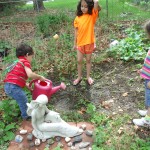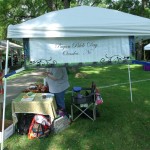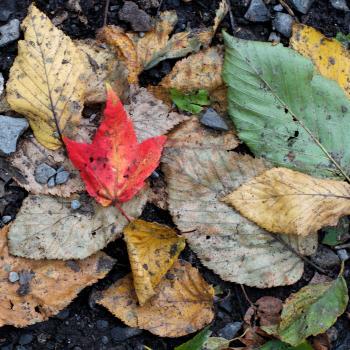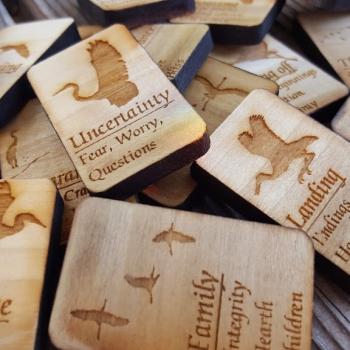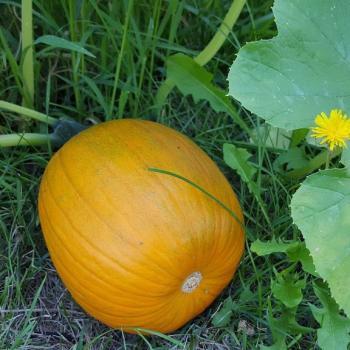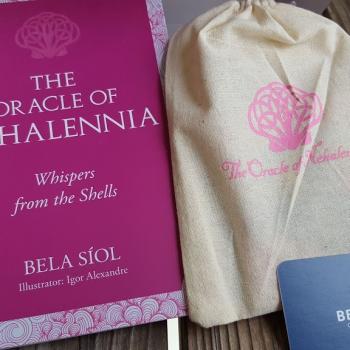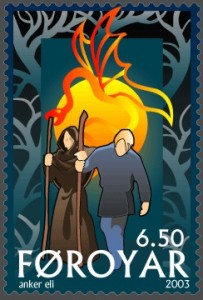
Faroe Stamp, Public Domain
“The Aesir met on Idavoll Plain,
they built altars and high temples..
They played chequers in the meadow, they were merry,
they did not lack for gold at all,”
Voluspa, trans. Carolyne Larrington
As I have learned more about the views of many ancient Germanic tribes, the way that they perceived the world to work, I find myself seeing cycles everywhere. Time is a cycle from sundown to sundown, from new moon to new moon, season to season.
I believe there is a power for healing in this way of viewing things. Much like saying “this too shall pass,” acknowledging the cycles of my life gives me freedom, I know that all difficult times will eventually cycle around to happier ones.
Ragnarok is one of the most recognizable concepts in Heathenry; ask people on the street and you might find a few who know what it means. As a comparison, try asking people what a sumbel or Yggdrasil is – I’m sure you’d get a lot more funny looks! But it’s rarely looked at beyond the apocalypse-scenario storyline that our culture seems so obsessed with.
Ragnarok is hardly an apocalypse. The Voluspa, the poem in the Poetic Edda that recounts much of what we know of Ragnarok, begins the tale of the Aesir with an account of their happiness living on Idavoll, which translates to splendor plain. From this point, we hear of their inhospitable actions against the Jotuns, their war with the Vanir, and their general terribleness at upholding the peaceful, idealized world of Idavoll.
All this culminates in Ragnarok, where the world burns and many of the Gods are slain. But after this destruction, there is rebirth. The earth rises again out of the sea, shining and newly-formed. Baldr, who was killed earlier in the tale, returns from the realm of Hel. The Aesir who remain gather again on Idavoll, talk through the terrible things that happened, and then resume the idealized life they had been living before any of this started – the cycle comes around again.
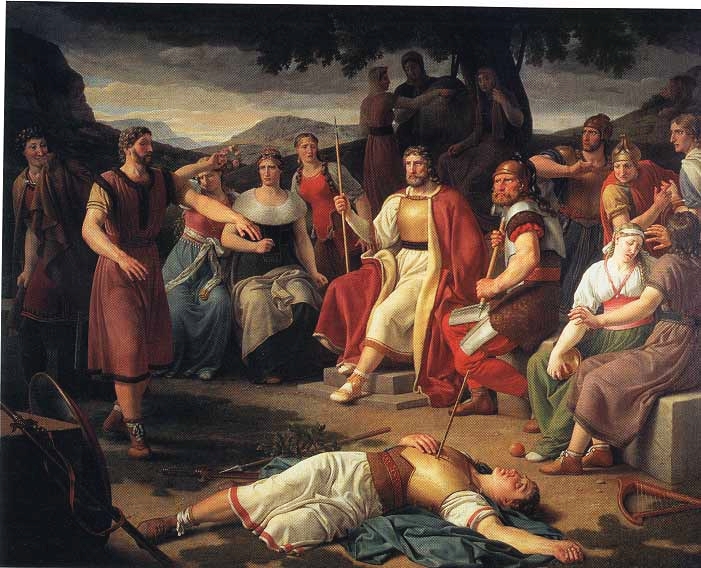
Christoffer Wilhelm Eckersberg
There are some who see this as a seasonal myth, and I can certainly see the interpretation. But to me, it is most helpful as a metaphor for the changes we all must endure. We all make decisions we don’t realize the consequences of, and we all make mistakes. The good news is, we generally have a chance to live through those consequences and come out stronger on the other side; and sometimes that other side is a place where we can be happy.
“The Aesir meet on Idavoll..
There afterwards will be found in the grass
the wonderful golden chequers,
those which they possessed in ancient times.”
Voluspa, trans. Carolyne Larrington

